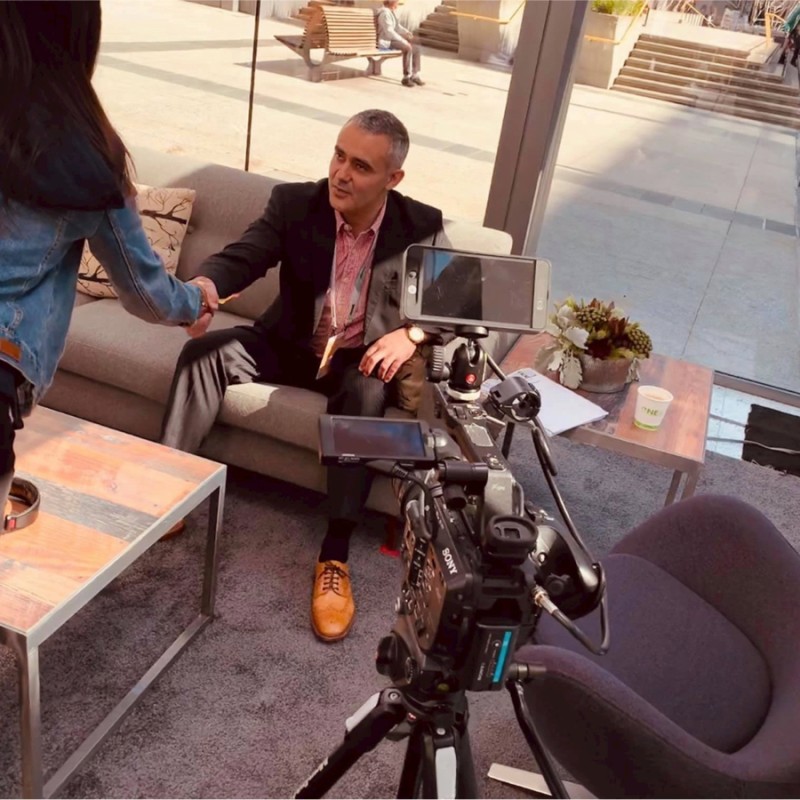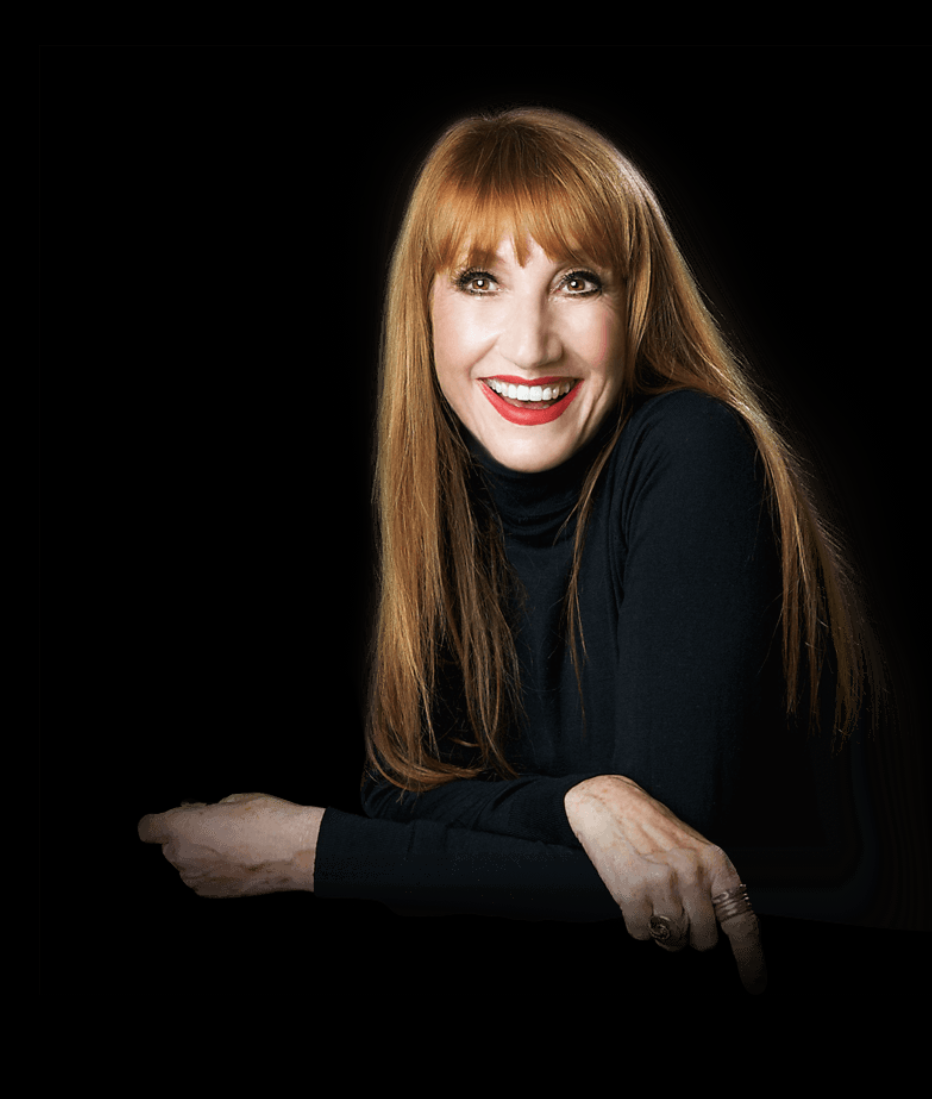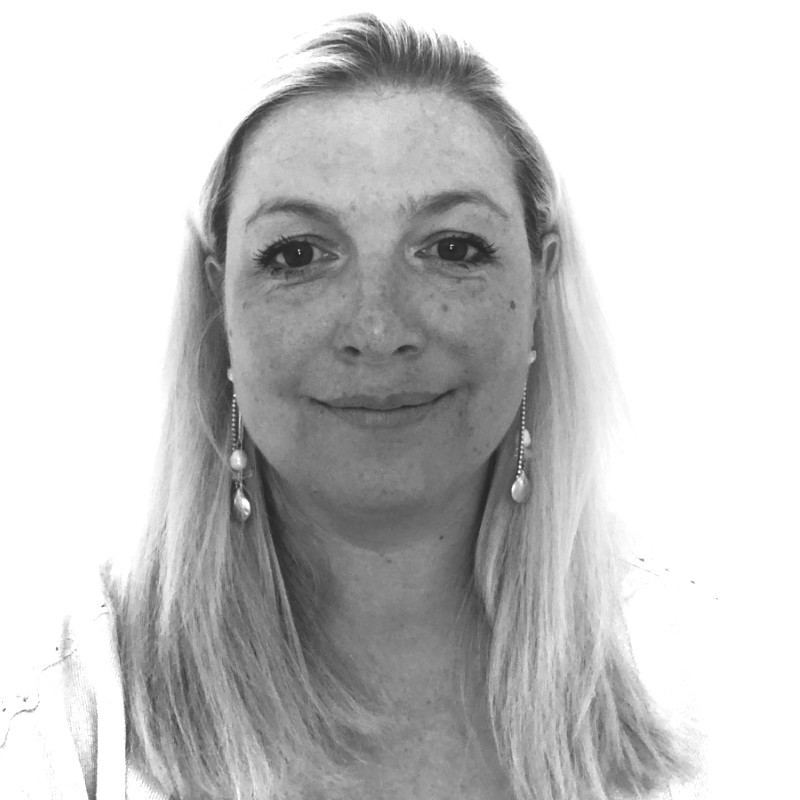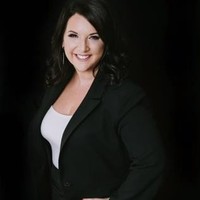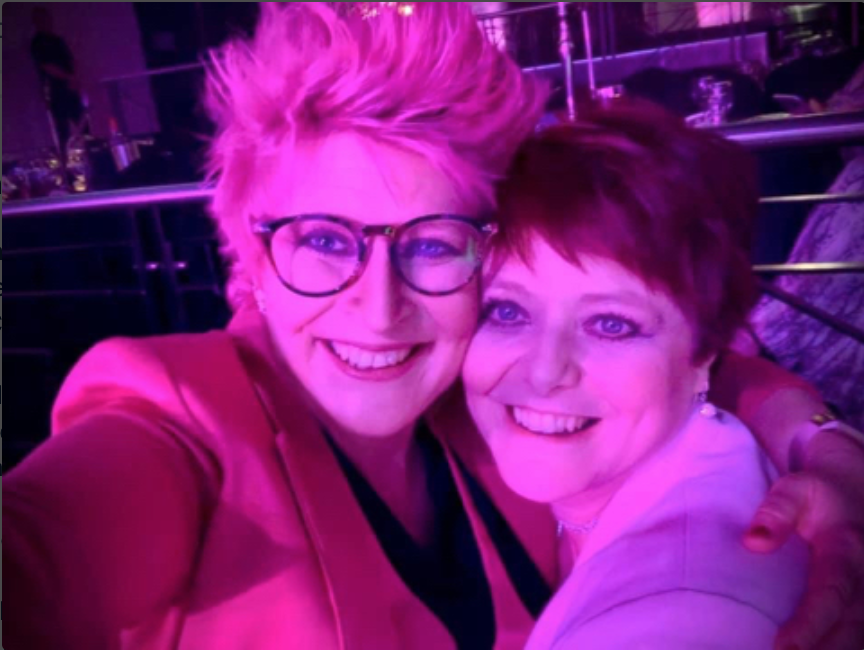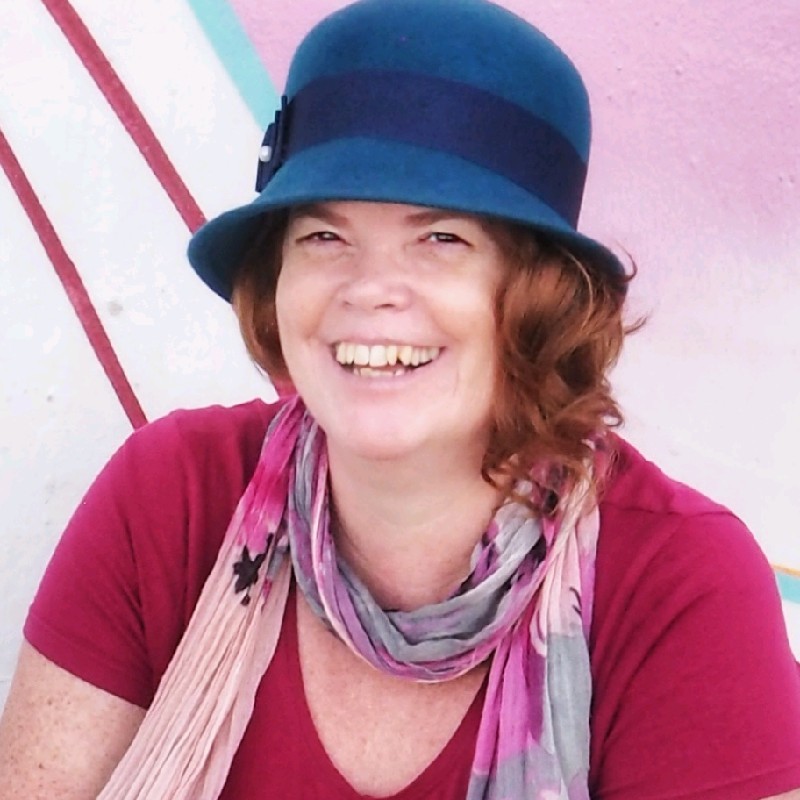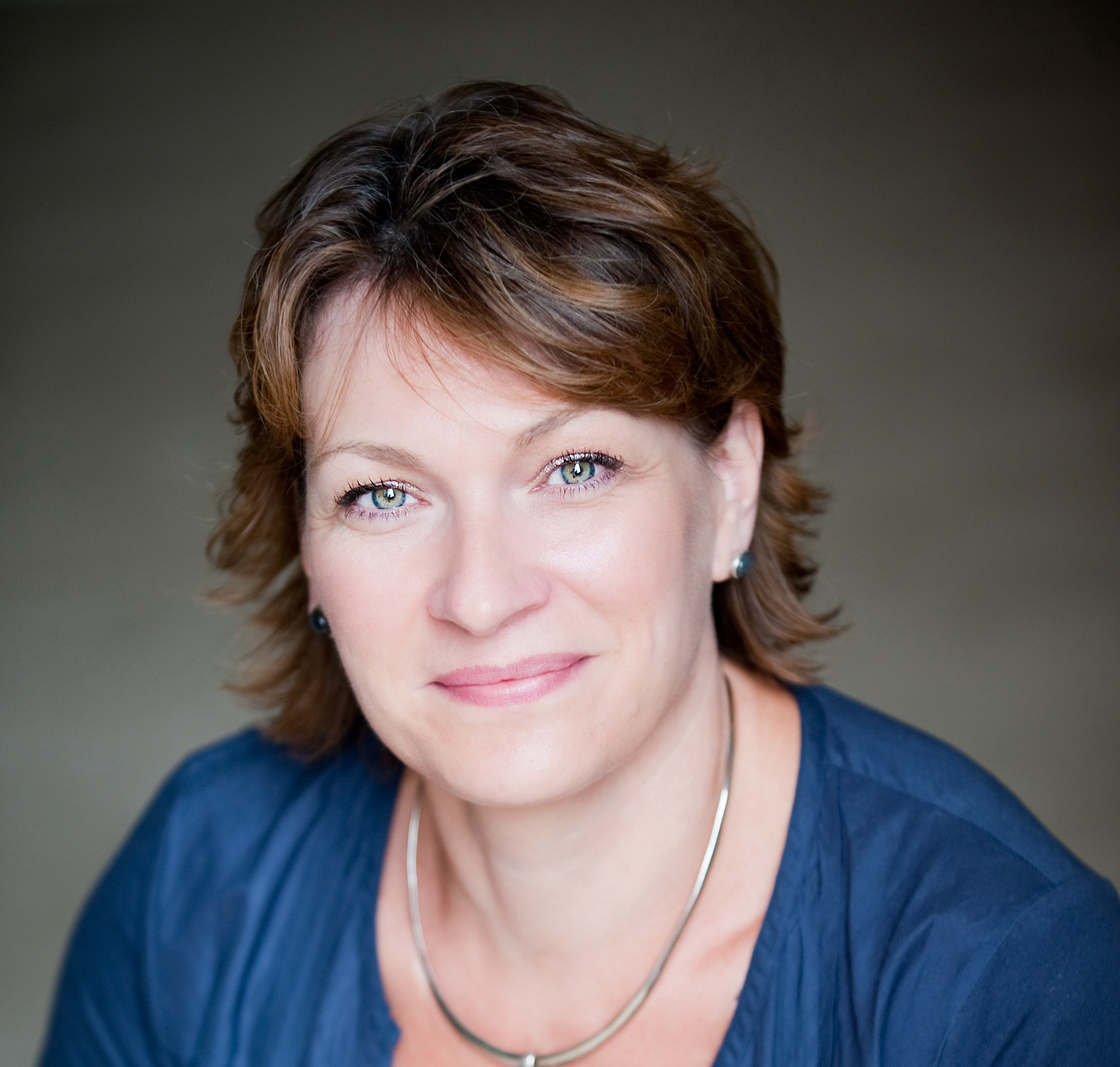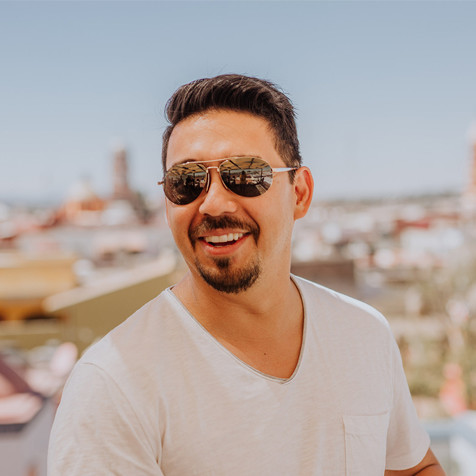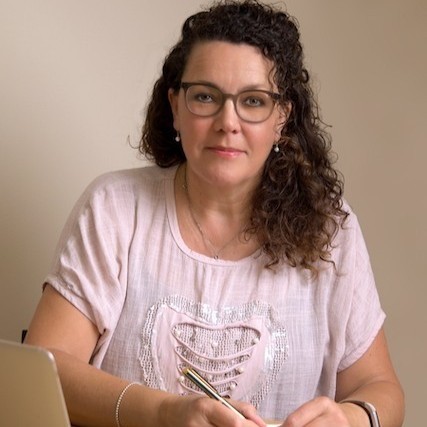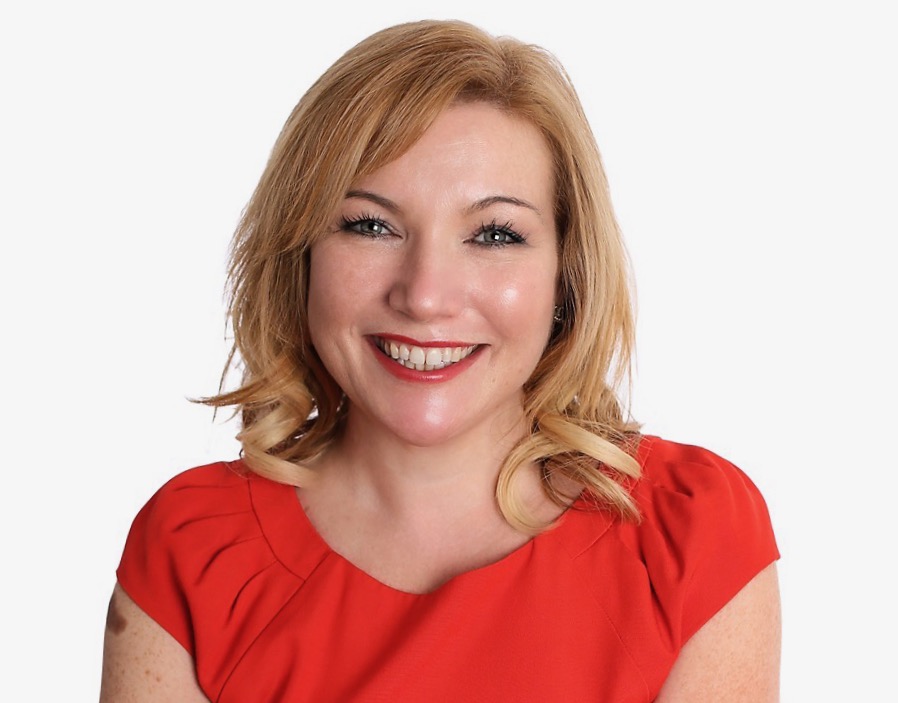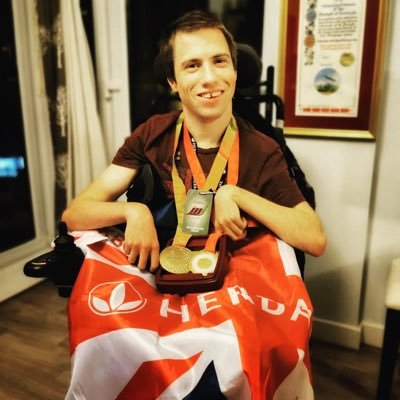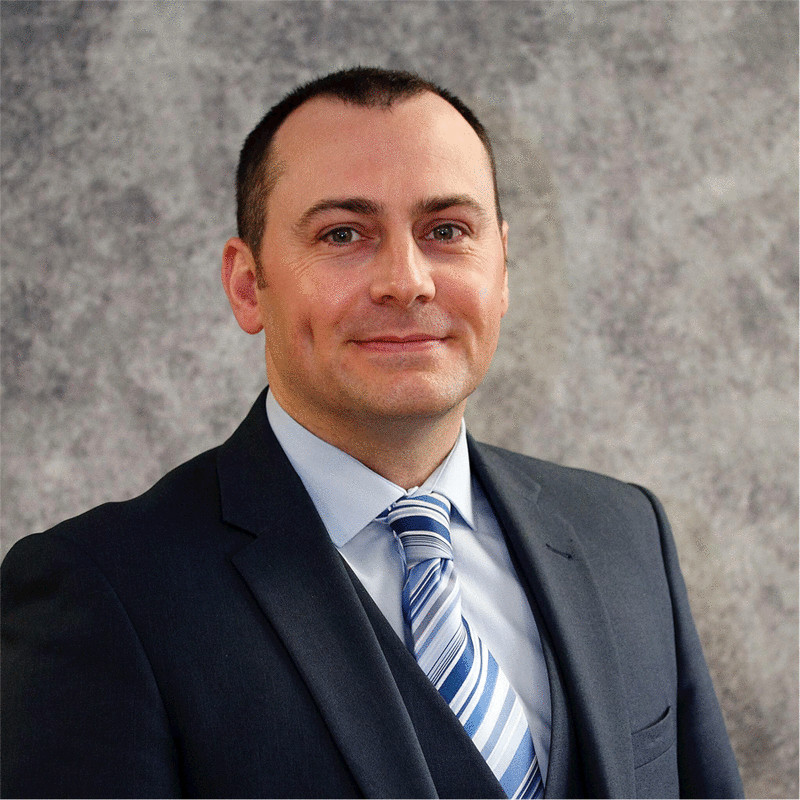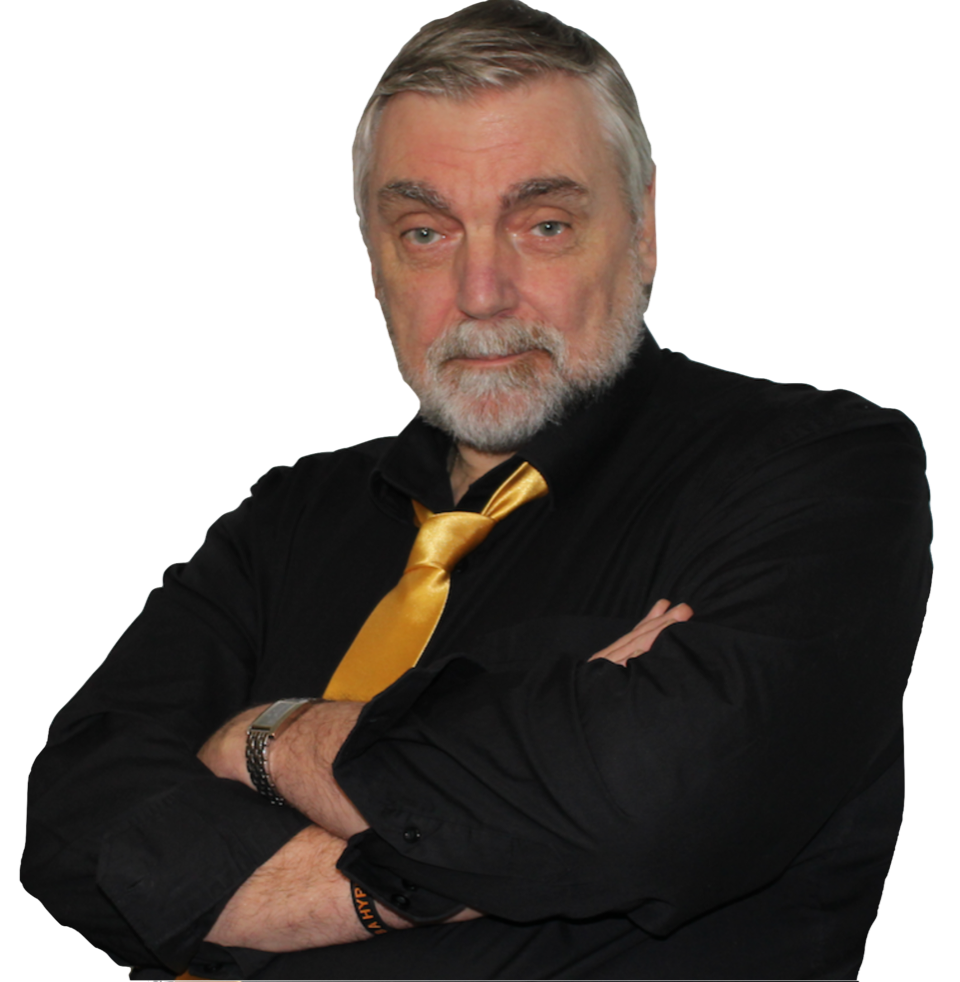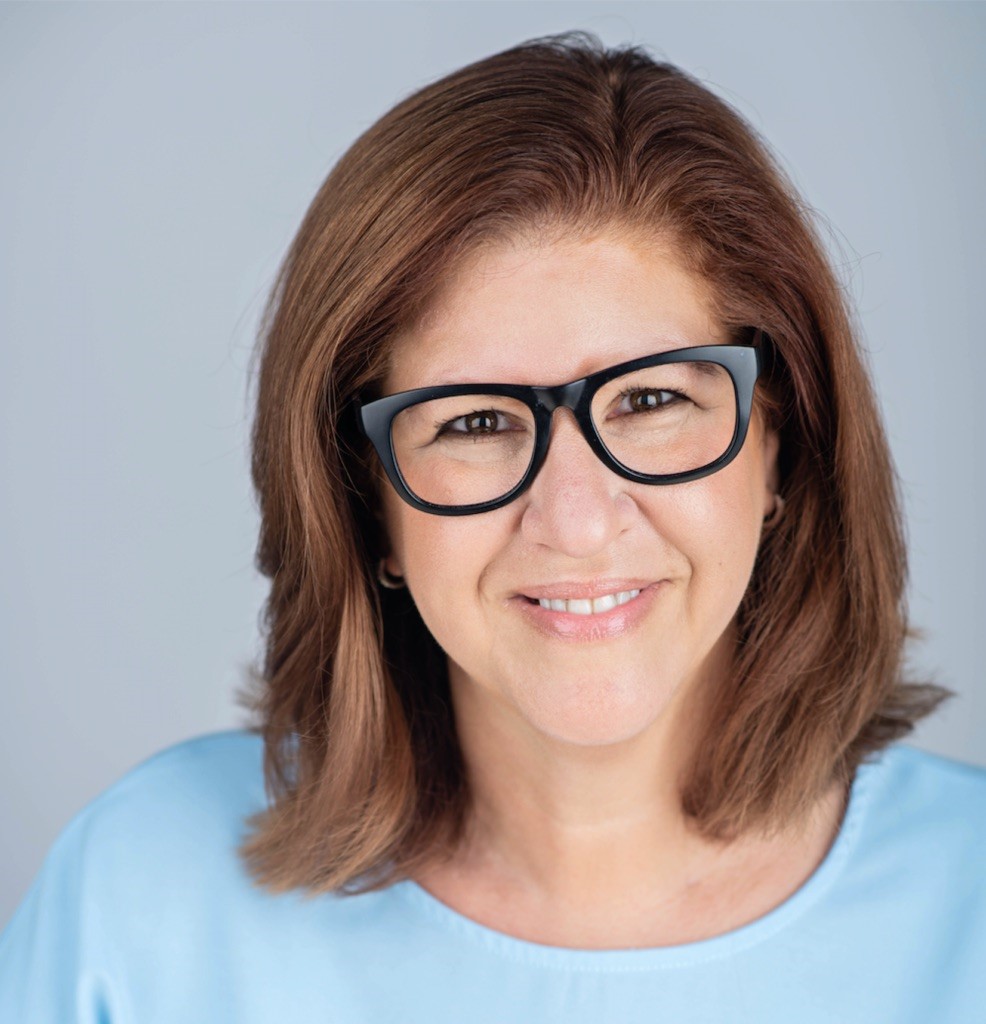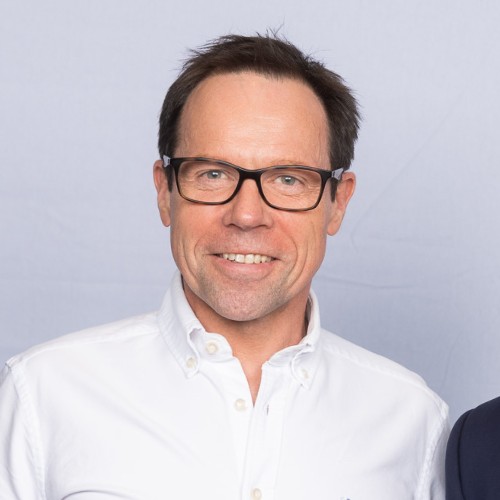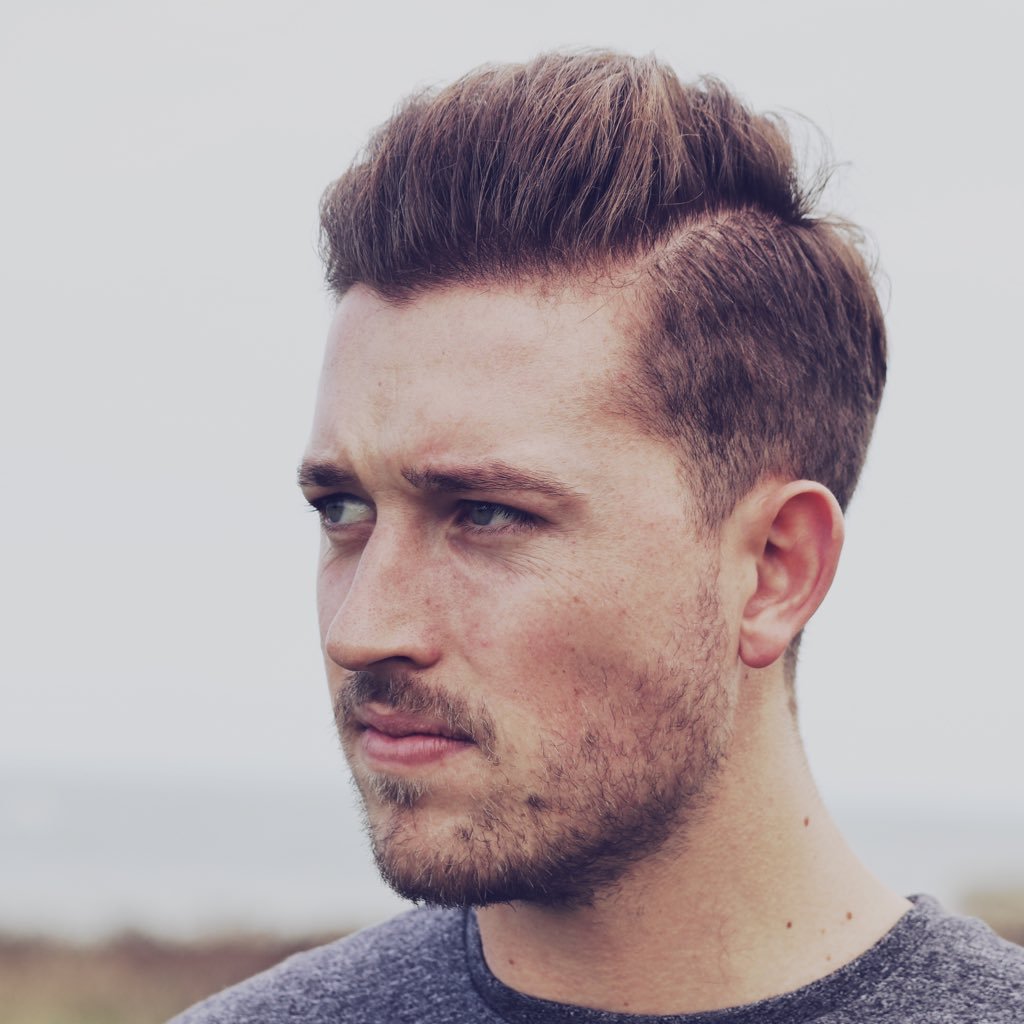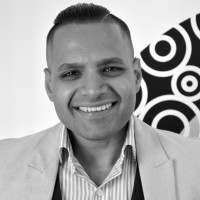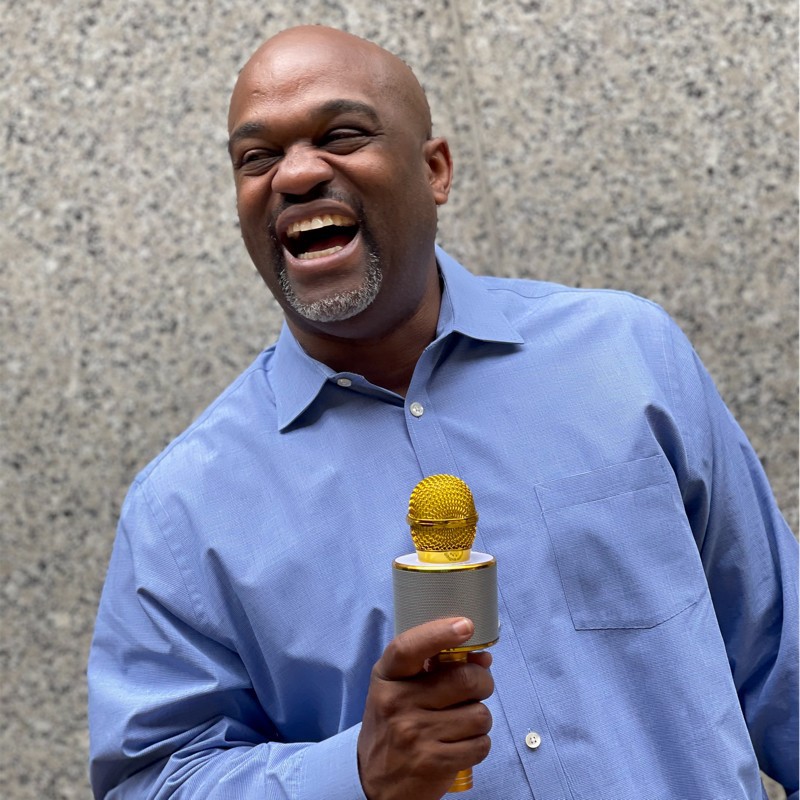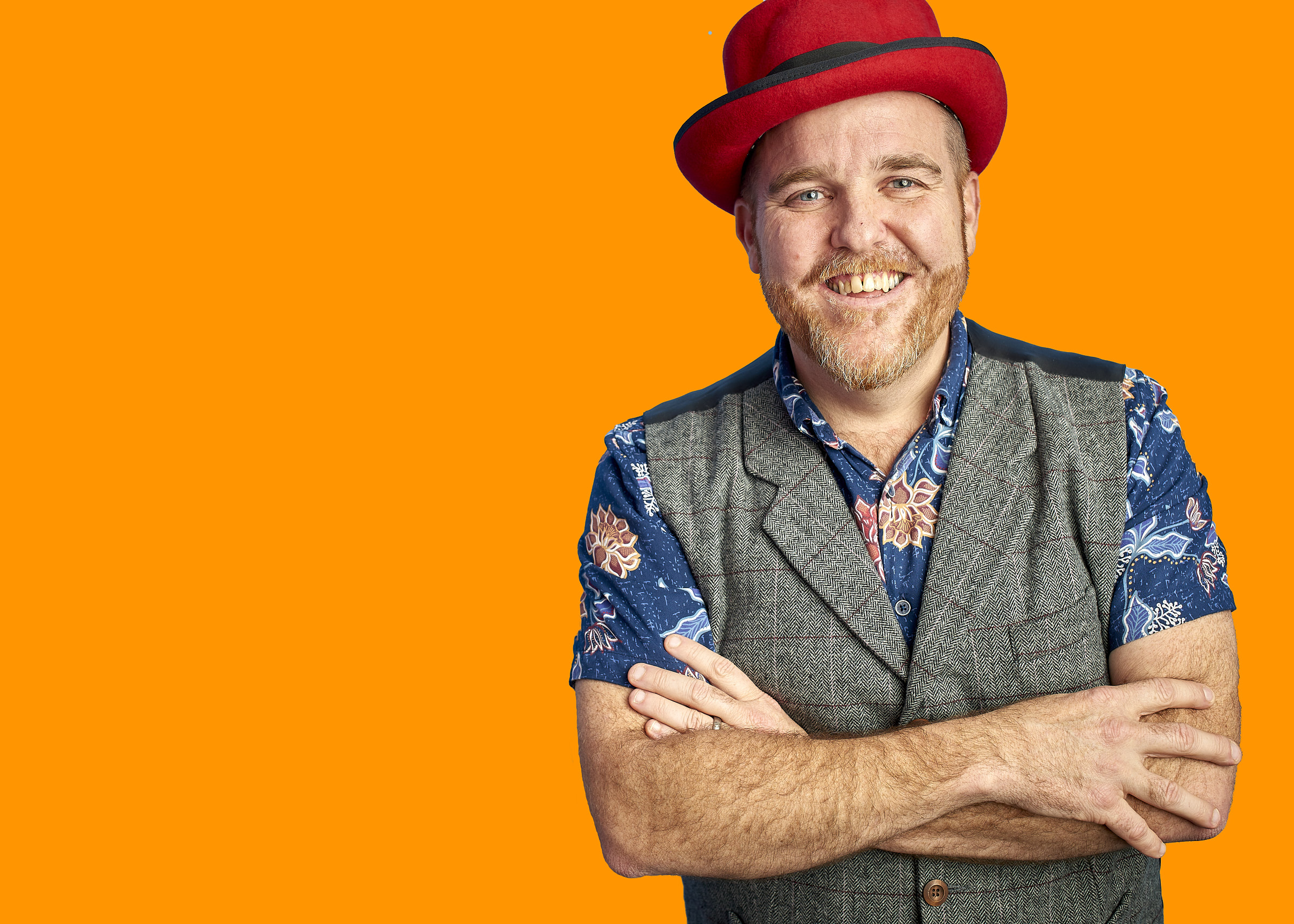How much money do podcasts make? The key to incredible podcast growth with the founder of “Guestio”, a podcast monetisation platform.
How much money do podcasts make? That's the burning question we've brought Travis Chappell in to answer.
Wanting to start a podcast? Put off by the time and cost involved?
After listening to or reading this episode you’ll be more aware of how you can actually make money from your podcast, rather than simply investing it!
We’re making conversations about podcast growth count, with Travis Chappell – Episode 87!
Travis divulges to us the answer to the burning question – how much money do podcasts make?

Big take-away quote from this conversation about how much money podcasts make with Travis Chappell:
“You have dozens of these podcast booking agencies, and I’m friends with a lot of them. Again, they stepped into a problem and they built the solution for the problem. But by doing that, I think there was another problem that was generated, which was the fact that the podcaster wasn’t getting paid.”
Travis Chappell, Making Conversations Count – (June 2022)
(Hard of hearing? Transcript here).
Strapped for data? You can hear a lower-bandwidth version of the episode here.)
Who is Travis Chappell? And how can his Guestio service help podcasters like you?
Travis Chappell is a podcaster and the founder of Guestio, a podcast growth consultancy service.
He and his team help podcasters grow their audience and make more money from their podcasts.
His “Build Your Network” podcast features guests such as Jordan Harbinger and Grant Cardone, and explores how people can leverage their networks to get powerful results.
Guestio is Travis’s latest project. It’s a platform that helps podcasters connect with guests for their shows, and it takes the hassle out of finding and booking guests.
The service is designed to save you time and help you grow your show by connecting you with high-quality guests.
It’s also operated on an affordable basis, with a pay-as-you-go model that means you only pay for the guests you actually use.
This means you have the opportunity to maintain quality control and only book the guests you actually want on your show.
Scroll down to continue reading this episode in which Dave Plunkett shares how he connects ideal small business collaboration partners together!
Sign up now to make sure you don’t miss the opportunity to improve every aspect of your lead-generation.
Using decades of knowledge and experience, Wendy can help you get the results you want, quickly.
Follow and listen on Apple Podcasts now by clicking this:
Sign up to Guestio and start levelling up your own podcast
Browsing on an Apple device? Click on the below buttons to listen to the previous episode or follow the podcast in Apple Podcasts!

What is Guestio and how does it work?
Guestio is a platform that connects podcasters with higher profile ‘star’ guests and entrepreneurs in order to create episodes people might actually want to listen to!
The star guests get to promote their products and services, and the podcasters get to increase their listener base through having better guests.
Guestio offers podcasters to make a ‘pitch’ to their ideal guests, including big names like John Lee Dumas and Manny Pacquiao as well as lesser-known guests, all for an agreed guesting fee.
Guestio then bridges that connection and takes a commission if the booking goes ahead.
Sign up to Guestio and start levelling up your own podcast
How podcasts are usually managed and how there’s a better way
Typically, when podcasters want to interview guests, they reach out to them directly. This can be done through email, social media, or other methods. However, this process can often be time-consuming and difficult.
There’s also very often a gate-keeper involved.
Someone whose job it is to deflect enquiries away from the individual, and keep their diary schedule as clear as possible.
Guestio removes that obstacle by offering you a roster of guests who have already agreed to be pitched to.
This means that all the guests you find are more likey to agree to come on to your podcast, particularly as they know their time will be compensated.
And conversely, when it comes to smaller guests who want to be on your podcast, Guestio facilitates that type of arrangement too.
If you have a popular podcast and an entrepreneur wants to come on to it to promote their book, you can use Guestio to charge them a guest fee to do so.
Here’s how Travis himself describes the experience…
(You can read the full transcript via the link below if you prefer)
Click here to listen right now.
Quote from episode – click here for full transcript
“…instead of just starting an agency that takes all the money and doesn’t pay the podcaster, we decided, well, why don’t we go and put money into the podcaster’s pocket? Because they’re the ones that built the audience and they’re the ones that deserve the money. You can upload your show into the marketplace and then based on, like, different stats and stuff, we recommend different pricing and you can set a price to a guest spot on your show..”
Sign up to Guestio and start levelling up your own podcast
Watch the episode promo!
Managed to catch the previous episode yet? Click play on the player below to listen!
The difference between podcasters and bloggers!
There’s definitely a disconnect between the value that’s placed on a guest blog post and a podcast guest recording. A lot of small businesses seem to think that blogging is the key to online marketing success, when in reality podcasts could offer a much more engaging and intimate experience for their listeners and potential customers.
Now don’t misunderstand us. We’re not suggesting guest blogging is a waste of marketing budget and time. On the contrary, blogging is great for SEO and can help small businesses get their name out there.
But podcasts offer a unique opportunity to connect with an audience in a way that blogging simply can’t.
This is because podcasts are more engaging and intimate than blogs.
And you can hear the actual tone and voice of the content creator.
If you’re a small business owner who’s looking for a new way to reach your target market, then considering investing in paying to guest on a podcast could be a smart move.
It could be the key to growing your business and building awareness with an audience that didn’t previously know you even existed!
And if you are the podcast, and you can get paid to offer that opportunity to small business owners, then (as Travis suggests in this episode) why not?
Quote from episode – click here for full transcript
“There’s kind of this almost like taboo attitude about it from a lot of people where it’s like, “well, I would never pay for a guest” or “I would never pay to go on a show”. And I’m just always curious as to why? It’s not anybody’s fault. It’s not like they’re just small minded. It has nothing to do with that. It’s just like that’s how the industry was portrayed for the last few years. .”
Sign up to Guestio and start levelling up your own podcast
Ok so tell me! How much money do podcasts actually make using Guestio?
The fees that guests are charging and paying vary wildly.
They’re as cheap as free and as steep as thousands of dollars.
If your podcast is at a certain level, you could probably expect to earn a few hundred dollars from an eager guest wanting to promote something.
But if you’re a small business or just starting out, don’t expect to command these numbers.
The average for most small businesses is probably in the $50-$100 range.
The strategy might not be for everyone, so have a listen to learn more about the offerings from Guestio, and decide for yourself if the service fits in with your own podcast growth strategy.
So there you have it! That’s the answer!
How much money do podcasts make? Simply put, as much as you’re willing to accept from your guest speakers.
Guestio won’t be for everyone, but it is a clever way to grow your podcast and make more money from it.
Do you think this could be a viable option for you and your podcast?
What are your thoughts? Let us know your takeaways via social media (links on the homepage) or via the reviews section on Apple Podcasts and Goodpods!
Quote from episode – click here for full transcript
“If you want to advertise on a platform like Facebook, you have to pay them money to get in front of the audience that they’ve built. It’s called Facebook advertising. If you want to get in front of Google’s audience, you have to pay for it. It’s , YouTube ads. All these platforms have ads and you have to pay to get in front of those people. A podcast guest spot is no different. And just some people have this kind of, like weird aversion to it just because they’re like, well, I don’t want to sell out my audience. It’s like, don’t then don’t. Like I said, it’s not a bribe to take a bad guest. It’s look at the guests and be like, would I bring this person on my show? If the answer is yes, then do it. But now you bring on a great guest and you get paid to interview them. That’s the best of both worlds.”
You’ll learn….
This episode of “Making Conversations Count”, in which Travis Chappell shares with us the answer to the burning question of how much money do podcasts make, shares his secrets on podcast growth, and covers:
- Why fight with bigger podcasts for great guests?
- Podcasters do all the work for none of the pay
- How much money do podcasts make?
- Travis’ conversation that counted – (and how he hates being comfortable!)
Sign up to Guestio and start levelling up your own podcast
So, Wendy’s takeaway from the conversation in this episode about podcast growth and monetisation with Travis Chappell?…
“
Hope you enjoy this fascinating conversation around podcast growth. Guestio seems a clever way to grow your podcast and make more money from it. Do you think this could be a viable option for you and your podcast?
Or has this conversation made you want to consider launching your own podcast?
What are your thoughts?
Carry on the conversation with Travis:
• LinkedIn
• Website
Please do let us know your take-aways from this episode by leaving a comment at https;//makingconversations.studio/Review-Travis-Chappell
New to this site? Learn more about Making Conversations Count podcast:
“Making Conversations Count” is a podcast from WAG Associates founder and telemarketing trainer Wendy Harris.
Missed our previous episodes?
You can catch up with any of the other guests we’ve been making conversations count with, here.
If you’re on your mobile device, you can hear them in your favourite platform (Apple or Spotify etc) here.
Once you’ve listened, remember to leave us a review!
NEVER MISS AN EPISODE AGAIN!!
Follow the show on Apple Podcasts here!
Follow the show on Spotify, here!
You are following the show on socials, right?
Only there will you see sneaky peaky teasers of the upcoming episodes, as well as updates and news on the show!
Here are the links just in case you need them:
Sign up to Guestio and start levelling up your own podcast
Dynamic read-along transcript
Fancy repeating the experience of making conversations count? Here's another chance to hear a popular previous conversation - on a similar theme to the one you just heard.
Listen to other episodes on your favourite platform…
Sign up to Guestio and start levelling up your own podcast
Spoiler alert: want to read the conversation that counted in this episode about podcast growth with Travis Chappell?…
You like to ruin the plot twist huh? OK, not judging. Here you are.
Well, it leads me on quite nicely, Travis, to the part of the show where I ask every guest about one conversation that they can think of that had it not have happened, something wouldn’t have changed. Can you think of one conversation that had it not happened? Your life wouldn’t have changed.
There are several of them throughout the last few years. But I’ll give you one example. That’s a friend of mine, Joel Marion. Actually, I was going to say he has one. He just exited December, his supplement company called BioTrust. It was a nine figure acquisition, and he exited that company a couple of years ago was the first time I met him. And we had a conversation. I went to his house in Tampa, which is one of the most beautiful homes that I’ve been in. Just like 180 degree view of the Bay. If it were humanly possible, you could jump from his swimming pool into the Bay in the backyard. It was just gorgeous. And we sat down for 5 hours in his house. He interviewed me for his show for a couple of hours. I interviewed him for my show for a couple of hours. We talked for an hour or two, like, in between and around the interviews. And at the time, he was launching this mastermind group called the 100 Million Mastermind Experience with a partner of his, Dan Fleyshman. At the time, I was not very suited to jump into this group because it was $100,000 to join the group. And at the time, my business was not at the seven figure mark yet, and it was a large number to me, and I immediately wrote it off. Like, there’s no way that’s impossible. I can’t do that yet. But he stuck with me over the next two months, three months, like, four months later, I decided I’m going to go ahead and jump in. I don’t know even how I’m going to make all the payments or what’s going to happen to be able to make it happen, but I feel like this is where I really need to be to level up my mindset, level up my business, my revenue, my income, my network, all those things. So paid the money, and now you fast forward a couple of years. I actually renewed my membership this past year, so now I invested 200K just with this one group in the last couple of years. But the people that I’ve not just met, but built real friendships and relationships with the mentors that I can call on, the coaching that I’ve received from different people in those groups, the connections that I’ve gotten from the organizers of the group, from Dan and Joel themselves, are willing to make text intros to people, refer clients to me. When I was building my software company, I raised $3 million pre-seed round to build the software, and a portion of that came from members that were angel investors in that group. So it’s more than paid for itself multiple times over. It did that in a way at the time where I didn’t know how it was exactly going to happen, but I just kind of trusted that it would work out. It was kind of a big leap of faith, but that was kind of what that was one of those life changing conversations where, like I said, I think I would still be like a year behind, maybe a year and a half behind on what I was trying to accomplish. If I didn’t jump into one of those kind of accelerating type groups like that.
Nothing really exciting happens in your comfort zone, does it?
Exactly. You can’t grow if there’s no pain. In order to build bigger muscle, you have to tear down the muscle that exists. It’s the same thing with your mindset, with your mentality. If you’re not doing stuff, if you’re not constantly putting yourself in situations where you’re uncomfortable, just accept that you’re not going to grow you’re not going to level up. You’re not going to get a different result by doing the same thing is the point. If you want a different result, if you want a mega result and you’re playing down here, you have to take mega type actions in order to get that type of result. It’s not going to come by doing all the same stuff that you’ve always done. So you have to put yourself in situations where it’s like, oh, man, this is a big risk, and I hope this works out, but I’m not sure it’s going to. You have to make yourself uncomfortable. You have to get comfortable being uncomfortable. If you’re feeling comfortable, that’s a sign that you’re not doing enough or that you’re not pushing enough. If that’s the goal that you have, right? I’m never the person to tell everybody that they need to have the same goals that I have in life. But if you do, then don’t whine to me and complain to me when you’re not reaching them, when you’re just doing the same stuff you’ve done for the last five years, do something different. Invest at a big level. Do something scary, risky. Do something that holds your feet to the fire. That’s the thing about investing 100 grand in yourself. Like, you’re going to show up, you’re going to make the most of it. You’re going to sit there, learn, be attentive, meet as many people as you can, and you’re invested in that. And you’re putting like a future accountability partner on the calendar. Money is the best accountability partner is what I always say. If you invest the money, you’re going to show up. And if you don’t, and then you sit there and complain about it, that’s on you. That’s not on the organisers. That’s not on the mastermind, the events. That’s on you because you didn’t show up, you didn’t do the work, and you sat in this sulking, scarcity mindset for too long and allowed yourself to become the victim again. And so if you’re the type of person that is the action taker and the person is going to make the most of the situation, you got to keep yourself accountable by continuing to put yourself in these uncomfortable situations where there’s a lot of risk, because that’s where all the growth happens.
Those calculated risks and the belief in yourself is a really powerful combination, isn’t it?
Oh, yeah, totally. Your belief in yourself, your confidence in yourself is where all success stems back to. If you don’t believe in you, how do you expect anybody else to? How do you sell something that you don’t believe in? I don’t know how to do that.
Now, and you can’t train that either. Believe me, I’ve tried.
If you don’t believe in yourself, then how do you sell yourself to other people? Like, how do you sell the idea of doing business with you? How do you sell your products, your services? If you don’t even believe in your ability to do the things that you set out to do. If you don’t believe in you, how do you convince other people to believe in you? You have to have that confidence moving forward and sometimes investing in those big things, doing something really risky and then watching it pay off after you put in the work, that’s a big booster in confidence that allows you to go tackle the next risk because it’s like, look, I dropped 100K on that one thing and I didn’t know how I was going to pay that off and I did it. So this other thing that’s going to cost me 300K, like, whatever hiring an executive in my company or bringing on four more employees, like, oh, that’s going to add another 30 grand a month in my payroll or 20 grand a month in my payroll. How am I going to do that? It’s like, well, I’ve done it before at this level, and if I could figure it out at that level, I could probably figure it out at this level. So let’s do it. The only way to grow and scale and continue to push the boundaries is you have to live in a state of discomfort or you’re not growing.
That nervication that I so often refer to. It becomes quite familiar.
Yes.
Well, I’m so pleased that you had that conversation Because that’s ultimately led to the journey that you’re on, isn’t it, Travis, for what you’re doing as well is also helping. That’s the thing, isn’t it? You’ve identified a way of monetizing something that also helps others, and I think that’s kind of the secret sauce for me.
Yes, ma’am. That’s the goal. Trying to put more money in the pockets of the people Building the audiences. So that’s what we’re trying to do.
Well, we’ll make sure that we put all of the details in the show notes and on the website, and we always encourage our listeners to reach out to our guests. So Where’s the best place for them to carry on the conversation with you, Travis?
You can just go to my personal website, travischapel.com. C-H-A-P-P-E-L-L. Travis chappell.com. It’s kind of like a hub, so all my social links are there. Guestio is there. Basically, if you want to do anything with me, Travischapple.com is the place to go.
Fantastic. Well, I’ve learned something. I’m sure the listeners will, too. They’ll be thinking about podcasting in a totally new light. Thank you, you for sharing with me today.
Yes, ma’am. Looking forward to getting you some paid bookings on, Guestio.
Yay!
Want to listen to the audio version? In a place with limited downloads?
Click here to listen to a lower bandwidth version of the full episode:
Click this box to read the full Episode Transcript - Conversation around etiquette and manners - "Making Conversations Count"
You’ll read about:
You’ll hear:
Blaine and his TEDx Talk (1m02s)
Chief Results Officer? (3m47s)
Observations of business owners and entrepreneurs who struggle with results (12m19s)
Change doesn’t happen quickly enough but stick at it because it’s worth it! (23m25s)
Blaines’s conversation that counts (30m13s)
Blaine and his TEDx Talk (1m02s)
We all have these little idiosyncrasies that we like to hang on to... 21 seconds... an hour. If I was to say to my daughter, you've got all day to tie to your bedroom, guess what? It takes her all day to tidy her bedroom. So it's got to be the same in business. If you tell me I've only got 20 minutes to do something, I'll get it done with spare time!
Yes. Everything from when people argue for the limitations they get to keep them, to it's the lens that you look through that actually creates your life. So I call it the lens of the future, but that is so key. And then finding practical ways to program the subconscious mind to help you. Right. I did a TEDx Talk where I asked people to change the unlock screen on their phone. And so now, for years, I've been getting great feedback from people saying that made a big difference in their life. So whatever you're trying to bring about, you put that on your unlock screen. You can also have your family stuff, and then you can make a customized image. But many people have nothing. They have, like, the default unlock screen, which is interesting, but you see that screen, you unlock your phone 60 to 150 times a day. So it's a real strong way to keep putting what you want to bring about, what you think about what you bring about. It's a way to program that subconscious, but it's super powerful, and you're so right. That how you see it creates the reality. And if people get that, that's a big breakthrough.
Confession time. I did the unlock screen on my phone, and it was a picture of myself in actual fact, when I felt that I looked the best, I was slimmer, no Covid pounds. And it has been working because initially I was looking at it and thinking, this is I really don't like this. But it has had an impact. It's changed with what I eat, the what I drink, the getting up and moving more. So I'd say to anybody, just give it a try!
Yeah. Agreed. A lot of this stuff is self evident. Just try it for a little while. And you may not see it consciously, but your subconscious mind is still seeing it. And maybe you change it. Maybe you turn it to the side or you add some words to it. You can also kind of mix it up. I like to mix mine up every couple of weeks, but it's having the same core thing on there,
Chief Results Officer? (3m47s)
No, it is interesting. So what got you to become the chief Results officer then, Blaine?
So, for me, there were two moments of dawning comprehension where the world changes almost on a single thought. And for me, the first one came in college. I went to Purdue University in West Lafayette, Indiana, and I've always been kind of maybe like you and the listeners. I've been a little bit of a seeker, a seeker of knowledge. How can I do better? What could I do better? And so I saw this ad for an audio cassette tape. So I'm kind of dating myself. This was back in the 80s, but when I went to college and I sent away for this audio cassette, which was an abridged version of "Think and Grow Rich", it was actually this guy Earl Nightingale reading "Think and Grow Rich". And I got that audio tape, and then I subsequently purchased the book, and I realised there that "Think and Grow Rich". Now, the book is about Think and Grow Rich, but the riches can be anything. It could be financial, he talks about that, but it could be harmonious relationships, your health. And that's where this concept of what you think about you bring about. That was where I first got that. And I realized, now, wait a second, I'm in a lot more control than I realized. And I had a lot of success because of that initial reading of that book. And actually, I met my wife. We've been married 30 years, so I met her.
Congratulations.
Yes. That was kind of the first thing that started me on the journey there and started kind of taking control of myself a little bit more. But then the big change, the big dawning comprehension moment number two. I came back from a business trip, my degree's in computer science, I was working as a software engineer, and I came back from this long business trip, and my son Beau, he was one year old, and he was, like, giving me the cold shoulder when I came back. And I said, hey, Beth, what's going on? What's wrong with Beau here? And she said, well, you were gone so long, he kind of forgot who you were. And I was like, what? I mean, that hit me emotionally pretty hard at night. And I realized when I was a kid, I'd come home to an empty house. Both my parents worked. And so that night I had this moment of dawning comprehension, and I made a clarifying decision. Now, when you make a clarifying decision, it kind of like, cuts out a lot of other decisions, cuts out a lot of noise and really focuses you almost like a laser on one thing. And that decision was that I was going to be a work from home dad. And so it took me a year. It took me a year to get there because we were kind of conservative and wanted to save up enough money and have living expenses in the bank. But anyway, a year later, my wife said, if you can make more on your side hustle thing, whatever you're doing here from home, and you make more money at that than you do from the job or even the same, then you can go, you can cut away the job. So I did that. So it took me a year, but I did that and I left my job. And that was 27 years ago. And so for the last 27 years, I've been working from home, running businesses that really have no daily operations. So I've been able to do a lot of self development and that's what led me on the course to become the Chief Results Officer. I started helping people. I created a company called Selfluence, which is really kind of the art and science of influencing yourself. But more than that, it's the power that you already have to influence yourself. You don't need any special software, you don't have to buy anything else. You have it all kind of within you. And I started helping a lot of mastermind groups and they said, hey, you're helping us get results every week. We're going to call you the Chief Results Officer. I'm like. Oh, I like that. So I like the title. I took the title and then I went to the US Patent Office and I registered the title. So now I can say I'm America's only Chief Results officer. But anyway, I've been doing that and I think that's why I'm here. I think God has me on the planet to help people take control of their lives by taking control of themselves. So that's what I've been doing. Now, pretty much 27 years from home, kids are out of the nest now, so I have a lot more time to serve clients than I did before, but I really do enjoy it.
What a benefit for Beau, really? And gosh, we say this so often on this show is that there are things that you can do that can help and aid us, but ultimately it comes back to self. It doesn't matter. So you're saying that you decided to do something. Reminds me of Rob Begg who's a past guest as well. He's also a mindset expert and he says if you decide, you've also got to commit and that's effectively what you've done. So there's a lot of entrepreneurs out there that I think they decide that they're going to work for themselves, but they don't commit. Do you see that it goes hand in hand?
I do. And I think there's a third component, and that is the action right there. There's a famous joke. Three birds are sitting on a tree, one decides to fly off. How many birds are left? And the audience typically says two, but no three. One made a decision, but they didn't fly off, they didn't take the action right. So I think what you think about, you bring about that. It's a combination of you make the decision right, and then you need to commit to that decision, but your commitment shows up in action. And so it's the action steps you take that kind of determine if it's real or not. And I will say that many decisions and desires kind of die on the vine because they're not strong enough for that person. And you can tell they're not strong enough if they don't want to wake up early, stay up late, and really put the action behind it. Right? And that's where you see the people really begin to move forward, because it's even taking the action. Even if you're going in the wrong direction, at least you're moving. They say you can't steer a parked car. You got to be moving. You got to take action. And it's in the action that really you kind of learn more about it, and then it can either grow, or you might realize that you're heading in the wrong direction. But that's okay, because it's in the knowing of where you're going. That's the fun part. And I like to tell people, you can't change your destination overnight, but you can change your direction. So if you figure out where you want to go, you can point in that direction and then start to move there. But in turning and facing, like, whatever it is you really want in life, you're going to feel the energy chemically. You're going to get excited about it, you're going to feel it.
It's a bit like stepping out into the sunshine, isn't it, and feeling it on your face. It is that much of an impact. But that's great course correction, isn't it? If we have these navigation systems built in, we are also tied to the magnetic force. So why do you think we have moved away so far from what comes naturally to us? Blaine, what's your take on that?
When you can get back to these core things? It feels good, it feels right. But today, more so than any time in the history of the world, is that there are so many distractions, and the level of distractions are so high. And everybody that I know has one of these, which is a smartphone, a cell phone. And so that can be like the greatest tool of productivity or the most evil distraction machine known to man or woman. For me, it's the level of distractions number one, and the loss of think time. That would probably be number two. Of time where you are... it's almost like more shower time, where there's no phones, there's no electronics, there's no outside world. People need more of that. I tell them, your phone has airplane mode. That's not just for airplanes. You can use it during the week, too. But I think lack of Think Time and distractions are the two things that pull you away, maybe even from who you are, who you want to be, your self development. So switching, that is possible, right? So switching, removing distractions. Right. So my family isn't super happy about it, but I've removed all the rings. Dings and dings. My phone never rings. If I'm expecting a call, maybe I'll look for that. But typically, I never answer the phone, and I've really cut down the distractions, number one. And then number two is I put a lot of think time back into my day and into my life and I think that makes a big difference.
Observations of business owners and entrepreneurs who struggle with results (12m19s)
What's your observation then, Blaine, of working with entrepreneurs and business owners that are struggling with that productivity and getting the results that they need? What's the first place that you sort of get them to be doing something slightly different?
I serve primarily business owners and the number one problem is overwhelm. Too many things to do and they're typically a day behind or more than a day behind things. And so what I like to do is first of all, show them that there is something to go after and I call it a day ahead. And so I like to take entrepreneurs from being a day behind to just being behind to being caught up, to being ahead to being a day ahead. And there is this thing, I call it the day ahead lifestyle which I live most days now, not every day, but most days I'm a day ahead. So when I wake up there may be some appointments like this podcast, but all the to-do's are done. Like I have no to-do's for the day and I'm working on tomorrow's to-do's. And so this concept of moving into that just first of all know that it's possible to be a day ahead. And my wife is back in school now getting a master's degree and she likes to be a week or two weeks ahead on homework and other things so you can get there. But the first thing is you've got to handle the overwhelm. And so typically what I see that works the best is to do some kind of a mind dump of all these things that you have to do. Now if you just do a mind dump alone, you're going to be more overwhelmed but guide them through. So get out a piece of paper and start to write down what are all the things that are top of mind. They're swimming around, oh, I've got to do this for this client or I got to do that. I've got these appointments, I've got to do this with the products, whatever it is. You have all these things swimming around and write all those things down and spend at least 15 minutes doing that and then take maybe a five minute break and then come back, maybe go a little bit deeper. Also, sometimes I provide a lot of prompts, a lot of questions to kind of pull more and more stuff out of your head and get it on paper. So the last time I did that in a big way, I ended up with 453 items on my list.
Wow!
Super overwhelming. Look out. Yikes. But the key is that you must immediately process the list. So it's in the immediate processing of the list that the overwhelm begins to subside. Because what I mean by processing the list is that you put an end next to things you can do now, something that takes less than five minutes. If it's a bigger project, I also say, look, why don't you write to the right of it? What's the next step on that? It might just be scheduled meeting with so and so, send somebody an email, something that's quick and fast. But you write an N next to those things that you can do now, and then you write an S next to things that need to be scheduled. They need to be done in the next, let's say, a week or so. And then D is next to things that you can delegate, you can give to someone else. Not that you're going to do it, but you could do it. It's possible to delegate. And then L, which should be the most used letter of all, stands for later. And those are things that are not pressing, let's say, in this week. Now, sometimes people do it just for the day. Like, what am I going to do today? Some people might do it for a month or a quarter. But one of those things that you can let go a little bit, you can put on the later list. And most of the time, like out of my 400, I don't know, probably 300, something of those were later items. But they're out of my head now and they're on paper. And then what happens is then you go after you take maybe 30 minutes and do a bunch of the Ns, get a little... start winning the battle of the brain chemicals, get the dopamine going, the serotonin, you're getting stuff done, you're moving forward. Then the bigger ones, you schedule those into your calendar, maybe you see what the next small step is again, win early, win often. And that starts to get them out of the overwhelm and get them into kind of high value, productive action. That's one thing I do. The other thing is that all entrepreneurs and business owners, most people, want to compress time. And so I do have a framework called the 30 Minutes Hour. It's how to get an hour's worth of stuff done in just 30 minutes. So sometimes I walk them through that framework as well, because if they can compress time, they're winning.
Yeah, there's a lot about what you've said there that comes back to feeling in control of the situation, isn't it? And thinking is just energy, isn't it? You've got all these thoughts and they're just randomly popping in and out of your attention span... by putting them down on paper makes perfect sense because you can look and it not take up your attention of worrying about it because you've already decided how you're going to do something with it. Is it next? Is it later? Is it a big thing? But it frees your energy up to be laser focused on the tasks that you really do need to do. And there's just that feeling of striking off things off your list, isn't there? That satisfaction of done that, done that... the fact that you've gotten to the end of a list is an achievement itself. But getting into the habit of doing that on a daily basis, that's got to be where the results are coming from.
Yes, you're exactly right about those open loops and all that thing that's swimming around in your head that you have to keep remembering, right? And when you get rid of those things now you've got some more room, some more capacity and you even feel better, like you said. And then also you're right about the checking off the list. A lot of times I'll ask business owners, have you ever done something and it's not on your list but you write it on your list so you could check it off? We've all kind of done that. But that gives us the dopamine that like physically shows up. You get a little square of dopamine in your brain and it feels good. Your body, your mind, it wants you to get stuff done, right? So it rewards that. So you are right. And a lot of it is how you think and what you think about you bring about and how you think makes all the difference and actually changes your reality. I call it the lens of the future. But how you say or say to yourself or how you think the prediction of the future is going to go, that is what you're going to end up creating, right? So the story I like to tell about that is let's say that I say, Wendy, look, I'm sorry but today is going to be one of the worst days of your life. And so then you go out and you're like, I don't know if Blaine's right or not. And then you're almost hit by a car and you say, wow, look, Blaine was right. I was almost hit by the car and you're shaking and you're like, oh my, what else is going to happen? And physically, brain chemical wise and physically, you get scared and you kind of get small and you're worried about the rest of the day right? Now if the same morning I said to you, Wendy, today is going to be one of the best days of your life. You're looking through a different lens but the same thing happens. You're almost hit by the car and you go, well Blaine was right. I was saved. Like, why was I saved? God still has something for me to do on this planet. I'm still here. And then you're exuberant. Now there's a little fear from the accident almost happening but right out of that you come up and you're not down, you're up. And the brain chemicals and your physiology is all like, this is a great day, what else is going to happen? Great. And so the same circumstances happened, but you created the reality based on the lens that you're looking through, and that is some of the biggest brain science and discoveries that are happening now is that you create that world based on that lens. So have you found that to be true in your...
Yeah, all the time. For me it comes down to language and it can be habitual. It's conditioned what we pick up from other people. You know that saying of who you surround yourself with, if that's negative, then that brings you down. I'm a positive kind of person in the main and it's hard if you're the only positive person sort of bringing the negative people up as well. So yeah, for me it's an energy thing. Everything is around energy and if you use the wrong language, it's like saying, oh, I nearly got hit by a car, but Blaine said it was a good day. You go, my luck was in and yet, it's got absolutely nothing to do with that. So it reminds me a little bit of the Matrix movie series that literally you can design the life that you want. How badly do you want it?
Yeah, agreed. And you're right about the people you hang around with. And I'm all for helping people, but I don't like maybe a third of the time I can be around people that are, let's say, at a lower frequency and have issues and I want to help them. And then a third of the time I like to be around people kind of my own energy level. And then another third of the time though, I want that higher energy. Right. I want to be kind of like you said, moving up and it can be tough. The other thing is if you're stuck in that lower energy or in that I call it head trash...
It's a good term.
Yeah, everybody has head trash. Now, my head trash, because I do a lot of things, is small and it's in the corner, but it's still there. And actually I do this thing called a mind shower every morning to kind of take the head trash out. But I like to tell people who are stuck with a lot of head trash that the solution to pollution is dilution. So if you ever see like if there's a liquid, a dark liquid in a beaker, the more clear water they add, it'll get less and less and less and less and soon it will be clear. What I find is the ratio is different for everybody. Like I need maybe a five to one ratio. So if I have 1 hour around negative people and bad things, I need 5 hours of positive. I got to pour in the positive to dilute down that negative. But realize that it is a bit of a battle, but like you said, what are you pouring in? Who are the people you around? What are you listening to? What are you watching? What foods are you eating? That all has energy and vibration, too. So you can really pour in so much of the higher vibration stuff that it does begin to minimize and kind of there's this little point where it'll flip over and you'll feel like you're in control of those thoughts rather than those thoughts and that negativity being in charge of you.
Change doesn’t happen quickly enough but stick at it because it’s worth it! (23m25s)
And you're right, really. That energy, the dark water into the clear, that's like recharging a battery, isn't it? When you need to go and find some positive to sort of just, you know... and I would say that people give up too soon. You can be adding clear water in and adding positivity into that dark water. And it could just be that you're just frustrated that the change is not happening quick enough. Please just stick at it because it's worth it.
Yeah, it is worth it. And realize that there's some people that will pour the dark ink back in the water, right? So you have to start to guard the inputs of your life, guard the inputs of your brain and your body. Because sometimes people don't even mean to do it. It's unconscious to them, but they are negative towards you or low energy.. so yeah keep pouring the positive and keep pouring it in big doses. I remember my favorite mentor is this guy Jim Rohn... I don't know if you remember...
Yeah, I know Jim Rohn.
Yeah, he's my favorite guy. I got to meet him and host him at an event one time and for him, he had this series, it's called The Power of Ambition, which I listened to on audio cassettes. Again, back to the dating myself. But I listened to that program 50 times in a row because I was at a point in my life where that's what I needed and I could finish the sentences of that program, but that's what I needed. That's what I needed to really get through some tough times. I mentioned before that I broke free from my job. But if you realize at that point we had a one year old son, I had a 50 hours week job and I started two other businesses at the same time. I mean, my marriage almost didn't make it through that year. So now we made it through that year and many others. But there are times where you got to lean into something, leaning into a mentor or whatever that positive thing is for you. But today there's so much available online and through things like Audible.com and podcasts like this, I mean, fantastic stuff that you can be pouring in that positive on a constant basis and you can do it at the same time as doing something else, right? You're driving in the car, pour in the positive. You're exercising poor in the positive, doing household chores pouring the positive. My wife and I were cleaning this weekend, and I was listening to a book on tape and just pouring in the positive.
Yeah, no, Neal, the producer, he'll be laughing at this now because he basically says, Wendy, in your world, there is no room for excuses. And there isn't really, because I understand that people can get into a position or a situation and not realize that they've gotten there, but there is always something that you can do to get yourself out of that. There are no excuses.
I like to say, when I lost my excuses, I found my results. That's a little quote I like to say. And you're right. And the other thing people need to be clear on is it's all about you compared to you, not you compared to other people. Now, if you want to change your happiness, you can compare yourself. Right. So if my ego is getting too big, then my wife can say, well, how much money does Oprah make every year? Okay? Yeah. I'm very small. But the opposite is also true, is if I'm feeling down, my wife can say, how many of your friends have no job and the freedom that you have. Right. In that comparison, you can regulate your happiness, but for your results, it is best to compare you to you. Right. Let's just better your best. And for me, this definition of success is kind of you moving towards your goal, whatever that is. So it's very personal, whatever that personal goal is. And if you find yourself in this situation, you can begin to move out of that situation and celebrate just maybe those first steps out of that situation. Right, so you're comparing yourself to you. So, yes, you can change direction overnight, and then you can begin to make measurable progress in a reasonable amount of time as compared to where you are. Right. And so, yeah, I think that's a valid point on happiness. And then also, no excuses for you getting better. Now you're human, so you're going to have bad days. That's right. But you just want to ride again, get back on the horse, ride again, and ride a little bit better. Figure out some way that you can ride a little bit better. So you go a little bit longer and you get a little bit closer to where you want to be and who you want to be.
And like you said at the very beginning, Blaine, growing rich and success is not necessarily about numbers in a bank balance. It can be how you want to live and who you want to live that with. Your reasons why.
Yes. Maslow's hierarchy of needs is there. I mean, you need a certain amount of money for food and shelter and those things, and if you're struggling there, then there's a lot of help. Right? I mean, the Internet, podcasts like this, books like Think and Grow Rich, there's a lot of resources there. But you have to take the step like you have to have the desire and then, as we said earlier, make the decision, commit to the decision, but then take some action behind that decision. Right. And when you feed the decision with action, then you're going to find out, is this really something good for me or not? And most people find that it is. And then they start moving forward. And then it's funny that when you start moving forward, it's kind of a little slow and slogging in the beginning, but as you get out of the mud and you get out of that and you start to go faster and faster and faster, typically then things start to move really fast. That's exciting as I see that in people when they adopt, say, a new habit and then all of a sudden now everything else in their life is kind of taking off.
It is just about making that start. If you make the start, you're already ahead of where you were.
Yes.
Blaines’s conversation that counts (30m13s)
It seems only right, really, at this juncture, to ask you about a conversation that created a turning point for you. I've got a feeling that it may link to what you were talking about with your career change and things like that, but you might surprise me because of course I never know what's coming next.
That's exciting.
So what was that one conversation that changed your life either for business or for personal?
It started as a conversation and changed my life. And that was actually Jim Rohn. And so Jim Rohn, a friend of mine, introduced me to Jim Rohn and then I was able to actually host him at an event I was running. And I got lucky because he had a house in the Phoenix area and this event was in Phoenix and he happened to be there. So it was very easy for him to come to this event. And so he came to that event and I got to hear him and share the stage with him. But the things that he said that evening had a big impact on me. Right. And one of the things he says is it's not what happens that determines your life future, it's what you do about what happens. And that was the beginning of kind of the lens conversation as well. But he said that, so it's not what happens that determines your life future, it's what you do about what happens. And I realized in that moment, I realized that I didn't have to worry about circumstances, the economy, the pandemics, and all these different things that's going to happen to everybody actually. But it's my response to what happens that determines the outcome of my life and my businesses. And then he went on to say the other thing he said that night was don't wish it was easier, wish you were better. And I was like, Whoa, that was big. Don't wish for less problems, wish for more wisdom. And he just got me to switch it to see that praying and begging for things to be better or easier, that was just going to fix the thing one time. If I increased my wisdom and I got better, that's going to increase everything for the rest of my life. And so that started me on a nice trajectory. But it was that conversation that night with Jim Rohn that I think led me to this course of becoming the Chief Results Officer. Now, having the time to do that with my son. Having the inputs was the "Think and Grow Rich" book. But it was that conversation that night. He also said, profits are better than wages. And I was like, oh, poof, I've got to do more of my own business. So that was it.
Wow. I know, previous guest Brad Sugars, he was influenced by Jim in a big way, and he talked about that on the show as well. Isn't it interesting, because we've already kind of touched on this, that just by switching your language out just changes the end results of what you want to be creating.
Agreed. And a couple of years ago, I read this one book called The One Thing by a guy named Keller, and in there he said and some people say different ways he says, when you argue for your limitations, you get to keep them. It was just that language right there. That's where I realized, now, wait a second, let me say that again. Let me hear that for real. When you argue for your limitations, you get to keep them. And so what happened is that was the trigger for me kind of processing my own language, right? So if I start to say, I'm too old, I'm too this, I'm too that, I can't this, I can't that, won't all that almost negative kind of self talk. And it was on big things and small things, I realized it was almost like the predefeated mind, I'm never going to try that thing, because I've just accepted that limitation. And then I started hearing that language in other people, and now I can't go anywhere without hearing people arguing for their limitations all the time. But it's gotten so good in our family or in some businesses, masterminds that I work with, they'll say, oh, now Blaine is going to say you're arguing for your limitations there. But that consciousness around what you say is so big, and that can be kind of that pivotal point in your life, is when you start to listen to and process that self talk. That's big.
Yeah. Awareness. Self awareness. It can be a real driving force... or not. Well, thank goodness for Jim Rohn. Honestly. Thank you, Blaine, for sharing your story and so many different productivity hacks that we can apply to our own business and go away. I'm going to just go and sort out my mind trash later. I got to do another dump.
And I will say, look... on the head trash. The thing that has helped me the most and my clients is really that concept of the mind shower. Meaning like most people take a physical shower every day, but how often do you take a Mind Shower where you kind of wash out your mind and take out the head trash? Now there's apps. I use an app called Headspace, kind of a meditation breathing app, but I do that every single day. And I've done that now because the app tracks like 1500 days in a row. I've done this Mind Shower, just a little thing like that. Now I like a ten minute Mind Shower, but if I don't have time, I'll do a three minute Mind Shower. But doing that, I do that first thing in the morning, every morning. And that's made a big difference because I feel like at the beginning of the day, I'm kind of taking control of my mind showering it out, cleaning it out a little bit, but then also getting that lens ready for the day to make the most from the day.
Yes, it fits with your computer science background as well. It's almost like you're defragging the system and every day just hit reset. And then that head trash writing everything down in such a big overwhelm. It's not going to be that big anymore, is it? Because you've already got a handle on it, right?
Agreed.
I've had an absolute blast. I know who to reach out to now when I need either some head trash or a Mind Shower. Thank you.
I have thoroughly enjoyed this and I just want to take a moment to thank you. This is not easy to put all this stuff together and put it online and you have a big results ripple, queen of conversations here. You have a big results ripple and I will bet that you are touching lives not yet born that somebody 20 or 30 years from now is going to find this stuff and it's going to make a difference. So I want to congratulate you on that and leave you with this. That the bad news. The bad news is time flies. The good news, you're the pilot. So pilot well.
Thank you. I've got to go and cry now.
Want to listen to the audio version? In a place with limited downloads?
Click here to listen to a lower bandwidth version of the full episode:
TL;dr - want the episode summarised in one paragraph, and in your own language? Here is it.
ENGLISH: “There’s dozens of booking agencies. They’re pitching all the time. There’s no shortage of guests. The thing is, for a lot of different people in different shows is there is a shortage of money coming in on the show, even though it takes a ton of time, energy and money to keep the show going, keep an audience engaged and grow and build that audience over time. So what we started doing is instead of just starting an agency that takes all the money and doesn’t pay the podcaster, we decided, well, why don’t we go and put money into the podcaster’s pocket? Because they’re the ones that built the audience and they’re the ones that deserve the money. You can upload your show into the marketplace and then based on, like, different stats and stuff, we recommend different pricing and you can set a price to a guest spot on your show. So instead of taking… obviously it’s not a bribe to bring on bad guests, you still have ultimate control over who you want to bring on… but if somebody happens to be a good fit and they’re willing to pay $50, $100, $200, $500, whatever it is, depending on the reach of the show, I mean, why wouldn’t you take that guest over somebody else that isn’t willing to pay? ..”
ARABIC:
هناك العشرات من وكالات الحجز. إنهم يروجون طوال الوقت. لا يوجد نقص في الضيوف. الشيء المهم هو أنه بالنسبة للعديد من الأشخاص المختلفين في العروض المختلفة ، هناك نقص في الأموال الواردة في العرض ، على الرغم من أن الأمر يتطلب الكثير من الوقت والجهد والمال لمواصلة العرض ، والحفاظ على مشاركة الجمهور والنمو وبناء هذا الجمهور بمرور الوقت. لذا ما بدأنا بفعله هو بدلاً من مجرد إنشاء وكالة تأخذ كل الأموال ولا تدفع للمسؤول ، قررنا ، حسنًا ، لماذا لا نذهب ونضع المال في جيب بودكاستر؟ لأنهم من بنى الجمهور وهم من يستحق المال. يمكنك تحميل العرض الخاص بك في السوق وبعد ذلك بناءً على الإحصائيات والأشياء المختلفة ، نوصي بتسعير مختلف ويمكنك تعيين سعر لموقع ضيف في العرض الخاص بك. لذا بدلاً من أخذ ... من الواضح أنها ليست رشوة لجلب ضيوف سيئين ، فلا يزال لديك سيطرة مطلقة على من تريد إحضاره ... ولكن إذا كان شخص ما مناسبًا تمامًا وكان على استعداد لدفع 50 دولارًا ، 100 دولار ، 200 دولار ، 500 دولار ، أيًا كان الأمر ، اعتمادًا على مدى وصول العرض ، أعني ، لماذا لا تأخذ هذا الضيف على شخص آخر غير مستعد للدفع؟
SPANISH: “Hay docenas de agencias de reservas. Están lanzando todo el tiempo. No faltan invitados. La cuestión es que, para muchas personas diferentes en diferentes programas, hay escasez de dinero para el programa, a pesar de que se necesita mucho tiempo, energía y dinero para mantener el programa en marcha, mantener a la audiencia involucrada y crecer. y construir esa audiencia con el tiempo. Entonces, lo que empezamos a hacer es que, en lugar de simplemente iniciar una agencia que toma todo el dinero y no le paga al podcaster, decidimos, bueno, ¿por qué no vamos y ponemos dinero en el bolsillo del podcaster? Porque son los que construyeron la audiencia y son los que merecen el dinero. Puede cargar su programa en el mercado y luego, en función de diferentes estadísticas y otras cosas, le recomendamos precios diferentes y puede establecer un precio para un lugar de invitado en su programa. Entonces, en lugar de tomar… obviamente no es un soborno traer malos invitados, todavía tienes el control final sobre a quién quieres traer… pero si alguien encaja bien y está dispuesto a pagar $ 50 , $ 100, $ 200, $ 500, lo que sea, dependiendo del alcance del programa, quiero decir, ¿por qué no aceptaría a ese invitado por encima de alguien que no está dispuesto a pagar?.“.
FRENCH: “Il existe des dizaines d’agences de réservation. Ils lancent tout le temps. Les invités ne manquent pas. Le fait est que pour beaucoup de personnes différentes dans différentes émissions, il y a un manque d’argent dans l’émission, même s’il faut beaucoup de temps, d’énergie et d’argent pour maintenir l’émission, garder un public engagé et grandir et construire ce public au fil du temps. Donc, ce que nous avons commencé à faire, c’est qu’au lieu de créer une agence qui prend tout l’argent et ne paie pas le podcasteur, nous avons décidé, eh bien, pourquoi ne pas mettre de l’argent dans la poche du podcasteur ? Parce que ce sont eux qui ont construit l’audience et ce sont eux qui méritent l’argent. Vous pouvez télécharger votre émission sur le marché, puis en fonction, par exemple, de différentes statistiques et autres, nous recommandons des prix différents et vous pouvez fixer un prix pour une place d’invité sur votre émission. Donc, au lieu de prendre… évidemment, ce n’est pas un pot-de-vin pour amener de mauvais invités, vous avez toujours le contrôle ultime sur qui vous voulez amener… mais si quelqu’un se trouve être un bon candidat et qu’il est prêt à payer 50 $ , 100 $, 200 $, 500 $, quoi que ce soit, selon la portée de l’émission, je veux dire, pourquoi ne prendriez-vous pas cet invité plutôt que quelqu’un d’autre qui n’est pas prêt à payer? ...“
GERMAN: “Es gibt Dutzende von Buchungsagenturen. Sie pitchen die ganze Zeit. An Gästen mangelt es nicht. Die Sache ist die, für viele verschiedene Leute in verschiedenen Shows gibt es einen Mangel an Geld für die Show, obwohl es eine Menge Zeit, Energie und Geld braucht, um die Show am Laufen zu halten, ein Publikum zu beschäftigen und zu wachsen und bauen Sie dieses Publikum im Laufe der Zeit auf. Also haben wir angefangen, anstatt einfach eine Agentur zu gründen, die das ganze Geld nimmt und den Podcaster nicht bezahlt, entschieden wir uns, nun, warum gehen wir nicht und stecken Geld in die Tasche des Podcasters? Weil sie diejenigen sind, die das Publikum aufgebaut haben, und sie sind diejenigen, die das Geld verdienen. Sie können Ihre Show auf den Marktplatz hochladen und dann, basierend auf verschiedenen Statistiken und anderen Dingen, empfehlen wir unterschiedliche Preise und Sie können einen Preis für einen Gastplatz in Ihrer Show festlegen. Anstatt zu nehmen… offensichtlich ist es keine Bestechung, schlechte Gäste anzuwerben, haben Sie immer noch die ultimative Kontrolle darüber, wen Sie anwerben wollen… aber wenn jemand gut passt und bereit ist, 50 Dollar zu zahlen , $100, $200, $500, was auch immer es ist, abhängig von der Reichweite der Show, ich meine, warum würdest du diesen Gast nicht jemand anderem vorziehen, der nicht bereit ist zu zahlen?.”
HOW TO CONTINUE MAKING CONVERSATIONS COUNT…
We don’t want the conversation to stop there!
-
-
-
- If you have listened and enjoyed the show, please follow via your favourite app and leave us a review. Every time someone leaves a good review a little happy dance is done!
- Wendy’s best-selling Training Handbook can be bought here – “Making Conversations Count: How to sell over the phone”
- If you want to carry on the conversation with Wendy, get in touch to book a free ChinWAG.
- To stay up to date with all of the latest episodes, subscribe to our Making Conversations Count email newsletter.
-
-
All of our listeners are important to us, so we would love it if you can connect with Wendy on LinkedIn and send her a message with your favourite episode!
BROWSE ALL EPISODES
Hear what people are saying about the show
Sometimes this means I change something I do, or something I would say, and other times it’s a real opportunity for reflection.
Thanks for sharing your guests with us Wendy, the podcasts are brilliant.
We all have pivotal moments and Wendy manages to find the right parts, showcasing the reasons why someone is who they are.
It’s those details that we connect to and come to more understanding of why people do what they do.
Wendy is a natural host and makes people feel at ease to share their stories.





